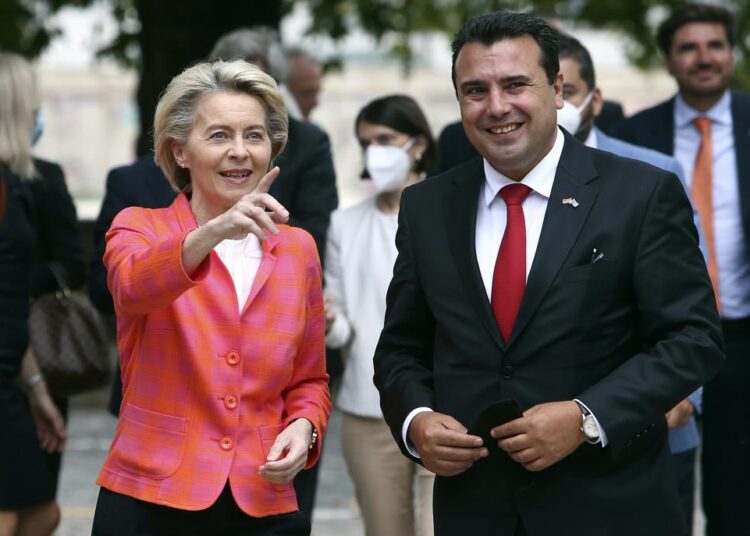BRUSSELS — As European Union leaders gather for a summit on how to keep engaging with their Western Balkans neighbours, the bloc’s once-successful enlargement policy faces an impasse.
The European Commission made repeated promises that the future of six countries in the region lies within the 27-nation bloc. But progress has stalled on admitting Albania, Bosnia, Kosovo, Montenegro, North Macedonia and Serbia amid divisions among member countries and some bilateral issues.
Nationalist populism has risen in Hungary and Poland, undermining unity. The entry of well over 1 million migrants in 2015 has exposed stark differences about how to manage them, sparking a major political crisis that has yet to be resolved.
EU expansion has also been routinely sidelined by crises like the Greek financial meltdown and Britain’s drawn-out exit, leaving the bloc very focused on its own survival rather than taking in new members. The planned departure of longtime German chancellor Angela Merkel and next year’s presidential election in France have deprived the EU of clear leadership, adding to the decision-making burden.
Although EU member countries are expected to reaffirm their commitment to the enlargement process during Wednesday’s meeting, they will stop short of providing a clear deadline, according to a draft document seen by The Associated Press.
The deadlock is causing frustration among the candidates amid a flare-up of tensions at the border between Kosovo and Serbia, raising questions about the bloc’s commitment.
“The dignity of the people has to be preserved, you know. We cannot beg, we cannot stand in the lobby of the European Union when culturally and geographically we are Europe,” said Predrag Tasic, a retired judge in North Macedonia. “Europe without Balkans, without this region, is not Europe.”
The six are at different stages on the EU membership path. Montenegro and Serbia are the most advanced, having opened formal accession talks years ago. Albania and North Macedonia are awaiting the official opening of negotiations, and Kosovo and Bosnia are potential candidates.
After EU leaders did not agree to go further in their negotiations with Serbia in June, the latest wrinkle focuses on Albania and North Macedonia. Those countries have fulfilled the criteria for beginning entry talks, but EU member Bulgaria opposes North Macedonia’s inclusion because of a dispute over language and national identity.
Since the Albanian and North Macedonian bids are linked and launching accession talks requires unanimous approval from all EU nations, the veto has also prevented Albania from moving forward.
“That actually is holding us hostage at a time where we have fulfilled all our tasks and are waiting to sit around the table with the European Union to kick off negotiations,” said Albanian Prime Minister Edi Rama.
Albania and North Macedonia were expecting to receive a green light to begin negotiations on joining Europe’s rich club two years ago, but their hopes were ruined at the time because of opposition from France and The Netherlands.
The EU has always said that membership is based on a candidate’s progress in areas such as respect for the rule of law and democratic standards, or the implementation of socio-economic reforms. But in the case of Albania and North Macedonia, the merits acknowledged by the commission are not rewarded.






Discussion about this post